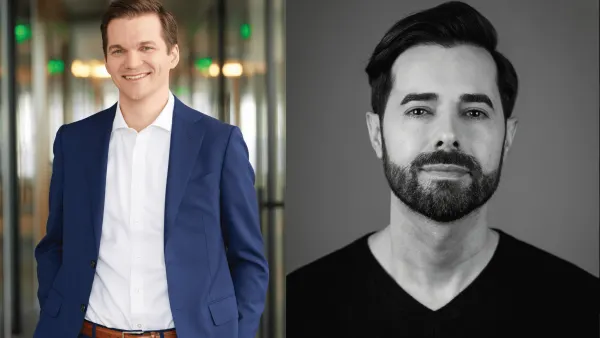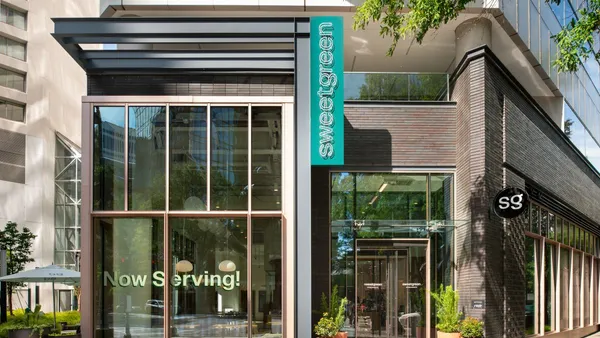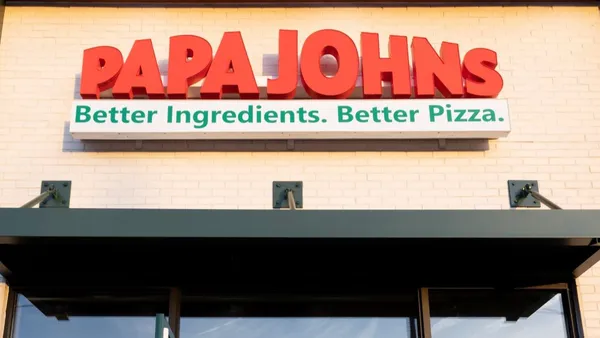Dive Brief:
- SeatNinja, an upstart reservation and seat management app based outside of Sacramento, has raised almost $600,000 in private equity, largely through preferred stock, to fund marketing, sales and development, reported the Sacramento Business Journal. The company works with about 250 restaurants mostly in northern California, including select Buffalo Wild Wings, Outback Steakhouse and Landry's locations.
- Founded in 2012 by Michael Reinero, a former CFO of an office equipment provider, SeatNinja gives restaurants waitlist and reservation capabilities in one interface, plus front-of-house seat management and customer data. In 2016 Reinero and business partner Matt Thompson appeared on Billion Dollar Buyer, CNBC's reality investment show hosted by Houston Rockets owner and Landry's CEO Tilman Fertitta, to present the start-up.
- This round of funding coincides with the announcement that Resy, the New York-based reservation platform, acquired competitor Reserve in October, upping its total U.S. restaurant count to 4,000.
Dive Insight:
With nearly $600,000 from investors, the Roseville-based company is making a move to compete in the now-permeable reservation marketplace. In addition to two-way texting and menu viewing, SeatNinja also helps restaurants track servers' sales, rotation and workload in real time.
The company, however, previously faced criticism for failing to address technical bugs during a restaurant test on Billion Dollar Buyer. On the show, taped in August 2016, Fertitta, the restaurateur behind Landry's Casinos, seemed intrigued by the app's potential, but expressed concern about error messages. He gave Reinero and Thompson one month to resolve those issues and invited them back for a second test round, but the app fell short of working seamlessly. Shortly after the show aired in November, the SeatNinja team insisted on Twitter that it had resolved those bugs and had reached 200 clients.
Restaurants have more choice than ever for their reservation and front-of-house software, and diners are far savvier in how they find those restaurants and book a table. Old-fashioned phone calls still dominate, but new companies like SeatNinja try to offer streamlined solutions built for the modern-day business and consumer. Even Outback Steakhouse has tried its hand with its Click Thru Seating option, where diners can add themselves to a waitlist for the immediate or later future and won’t be penalized for not showing up.
OpenTable has dominated since its 1998 inception but has long been criticized for its high costs. The system charges a monthly rate plus a $0.25 fee for reservations made through the restaurant's website and $1 for those made directly through OpenTable. Serving 47,000 restaurants worldwide, the company remains the largest reservation platform by far, but has made changes since Booking Holdings acquired it in 2014. In October, the company announced that CEO Crista Quarles will leave at the end of the year, as Kayak's leader takes the helm.
Meanwhile, Resy has launched an international presence that brings its global total to 10,000. The Reserve acquisition will add 1,000 restaurants in hot dining cities like Chicago, Washington and Boston. Resy also recently gobbled up a Spanish luxury reservation service called ClubKviar and a market research company called Servy, according to the New York Times.
Yelp has also augmented its standing since acquiring waitlist startup Nowait for $40 million in 2017, after a successful $8 million test partnership that let diners add their name to waitlists through the Yelp app. The ratings and review giant took another step just last week by adding Nowait kiosks to restaurants in Los Angeles, San Francisco and New York City, plus an "On My Way" feature for diners to alert businesses of their pending arrival.
To be more valuable to businesses, all of these startups have grown to become more full-service restaurant systems rather than a one-problem solution, as Nowait learned early on. Though SeatNinja still faces an uphill battle against more well-known competitors, it has an opportunity — especially since it already has a few big-named partners — to grow if it can find the right combination of features that will ease operations.











